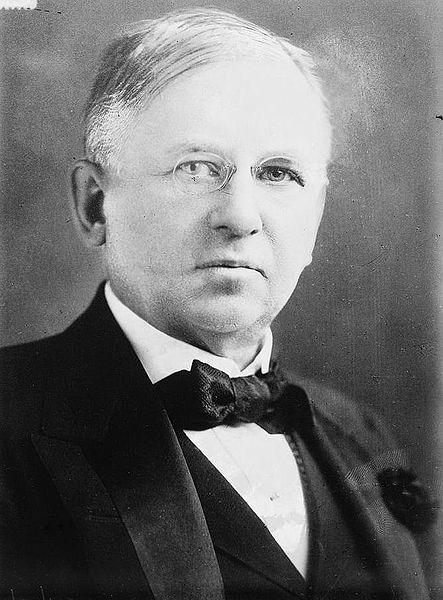
"Half the money I spend on advertising is wasted; the trouble is I don't know which half."
- Legendary department store magnate John Wanamaker
For most of the last 125 years, these words attributed to John Wanamaker have defined the practice of marketing, and certainly, advertising.
Unfortunately, the way most marketers use Wanamaker’s words does a huge disservice to him, and to the profession marketers claim to love.
Marketers who spout Wanamaker’s quote usually use it as evidence that marketing is creative, fun and wild but not very measurable, a field in which “trust me” and “we have no way of measuring that” are common responses to poorly conceived ideas.
That’s a ridiculous view. It’s one of the reasons why modern marketing, especially for business-to-consumer companies, is so disconnected from reality and from real, measurable results.
This fantasy land approach of many consumer marketers is often applied without consideration or thinking to business-to-business marketing, a field in which buying decisions are much more complicated and buyers themselves are much more sophisticated and skeptical.
The last person anyone should use to justify lazy or bad marketing is John Wanamaker. Most bad marketers know his quote, but nothing about the man who spoke it.
Wanamaker, a Philadelphia native, was a retail marketing genius, for his ability to implement others’ ideas (such as fixed prices and the money-back guarantee) and for his own inventions, especially in advertising and marketing.
Along with being an expert marketer, Wanamaker also had a reputation for being honest (think about that in the context of a field in which modern gurus like Seth Godin write books with titles such as All Marketers Are Liars).
Wanamaker is credited with running the first half-page and full-page newspaper ads, with hiring the first great professional advertising copywriter (after originally writing the ads himself) and with doubling revenues after hiring that copywriting legend, John Emory Powers.
The combination of Powers, a crank, and Wanamaker, a religious man who wouldn’t sell playing cards or advertise in the Sunday papers, set the tone for a tremendously successful marketing run that too many marketers have forgotten.
As quoted in one history of the early ad business, Powers said he preferred marketing that was really storytelling, essays about certain products: “That was the discovery . . . print the news of the store, no ‘catchy headings,’ no catches, no headings, no smartness, no brag . . . “ In other words, authentic storytelling, something that buyers didn’t get from most merchants in the late 1800s and today, something they prize more than just about anything in our totally transparent Internet world.
What’s most disturbing about how many marketers want to remember Wanamaker’s words is that he was committed to measurement and getting results. The difference between the late 1800s and now is that most of what Wanamaker was doing had not been tried before, so there were few benchmarks to use as yardsticks.
In that context, his quote was more about the exciting inability to measure what had not been tried before than it was a glib assertion (as it is today) that a marketer is too lazy or unwilling to measure what works.
After all, marketing, however creative, is designed to drive sales and pay the bills. Cute animal ads and comedy are fun but they are valuable only if they deliver results.
In the 21st century, most of what companies do with marketing is right there for analysis on the Internet. It’s no longer safe to mischaracterize the words attributed to John Wanamaker as a free pass for poorly conceived marketing that may or may not produce results.
That’s especially true for business-to-business companies, in which the average sale can be hundreds of thousands if not millions of dollars, and the sales cycle can be months if not years. Buyers need more than a bathroom joke, followed by a wink and a nod to know if their marketing is working. They need measurable results.
Want to know more about WordWrite’s commitment to delivering results in 21st century marketing? Download our guide to inbound marketing here.
